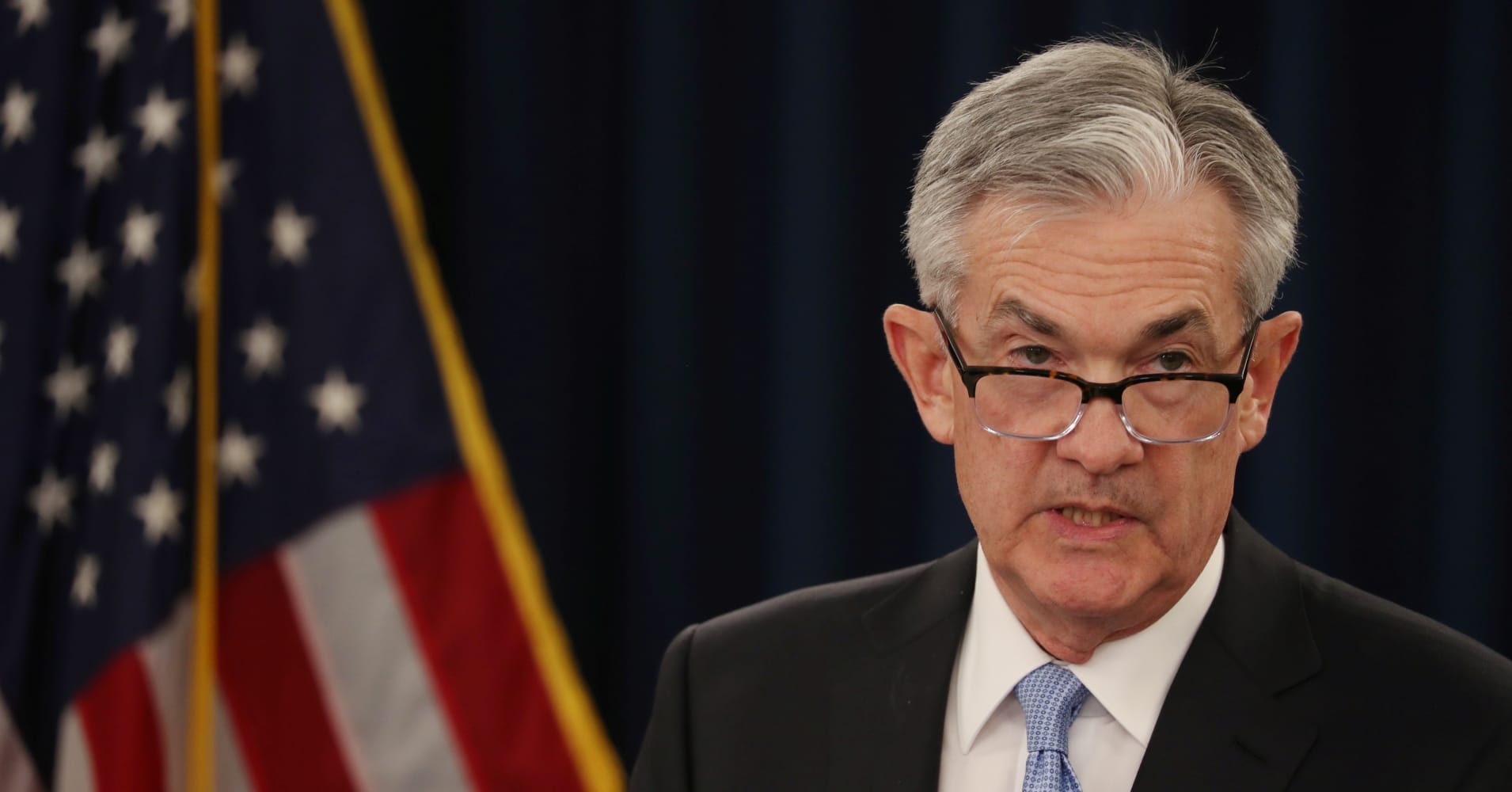
Life isn't getting any easier for Federal Reserve Chairman Jerome Powell.
The central bank chief, fresh off a year of intense criticism from President Donald Trump and a sharp rebuke from financial markets, now faces a landscape full of mines that could detonate in any direction.
Consider:
- Far from easing up now that the Fed has indicated no more rate hikes are coming this year, the White House just accelerated the pressure. Top Trump economic advisor Larry Kudlow said Friday that Powell and his cohorts on the Federal Open Market Committee now should be cutting interest rates, by as much as half a percentage point.
- There could be a dissenting voice on the way. Trump has indicated that he intends to nominate economic commentator Stephen Moore to the Fed Board of Governors. In an essay in late 2018, Moore suggested Powell should resign, though he recently walked back the comment.
- Other cracks could be forming at the Fed. Vice Chairman Randal Quarles said Friday in New York that a rate hike, not a cut, is likely ahead if the economy improves the way he expects.
"I do feel sorry for Chair Powell," Mohamed El-Erian, chief economist advisor at Allianz, told CNBC's "Squawk Box" in a Monday interview. "Not only does he have to navigate this divergence of growth, and it's a pretty tricky balance to strike, but he has to do so with an FOMC that's all over the place."
Powell indeed has had a rough go of it so far.
The Fed raised its benchmark interest rate four times in 2018, earning him Trump's scorn, even as the market remained patient. That patience expired in October, though, when the chair's comments sparked a belief that the Fed was ignoring some troubling signs in financial markets that were pointing to a downturn. More difficulties came in December when Powell implied that the Fed was not considering ending a program of reducing the bond holdings on its balance sheet.
The new year, though, brought some more tranquil moments.
Starting in January, the FOMC took a dovish turn in which it said it was considering winding down the balance sheet reduction and would be "patient" in raising rates. In March, the committee went full-circle, indicating that two projected rate hikes had been knocked down to zero and the balance sheet reduction would end in September.
Markets have rallied, but it's brought little peace to Powell, who continues to find himself under pressure with more White House heat and the prospect of a divided group of policymakers he will have to manage.
"The Fed solidified its U-turn on March 20, hoping to get off the stage, not to be in the spotlight. What do we find now? A massive tug-of-war," El-Erian said. "One the one hand, the White House is pressing for a 50 basis point cut. Not only do they say 'cut,' but they specify how much you should cut. On the other, Fed officials are saying not only are we unlikely to cut this year, but hikes aren't off the table, and you don't want that to develop."
Powell himself sounded adamant at his March news conference that it would take a lot for him to push for rate hikes. While he and others have voiced confidence in the U.S., they worry about developments overseas spilling over domestically and taking the momentum out of an economy that saw some of its fastest growth since the financial crisis in 2018.
A wild card in the situation is the president, who is now enlisting his top advisors, like Kudlow, to pressure the Fed. Trump has said the economy would be growing at an event faster pace except for the Fed's rate hikes, which have totaled nine since the normalization process began in 2015.
The president's position seemed bolstered when the market started to slide in the fourth quarter and then surged in the first quarter after the Fed changed its rhetoric.
"Trump in a lot of ways is going to feel emboldened, because he was right," said Christopher Whalen, head of Whalen Global Advisory. "He may not have known why he was right, but it doesn't matter. The Fed dropped the ball and they hurt their credibility with the market."
Divergent signals coming from FOMC speakers won't help.
Quarles' comments don't seem to reflect the committee's majority view. In the quarterly summary of economic projections released in March, just six of the 17 members who contributed to the "dot plot" of rate projections indicated that a rate hike this year was warranted.
At the same time, not a single member showed a cut through at least 2021. Even Minneapolis Fed President Neel Kashkari, one of the more dovish FOMC members, told the Wall Street Journal a few days ago that talk of a cut was premature.
If Moore's nominee makes it through the Senate — he's already faced criticism over this nontraditional credentials for a Fed seat — he could end up being a lone voice, though a nettlesome one.
A lack of support cuts is not likely to please Trump, who appointed Powell, Quarles, Richard Clarida and Michelle Bowman as FOMC governors, only to have them defy him when it has come to rates. Whalen said one would have to go back to former Fed Chairman Arthur Burns, who was berated by then-President Richard Nixon, to find a more hostile relationship between a central bank chairman and the occupant of the Oval Office.
"It is very hard for any Fed chairman, and this goes back tom the beginning of the system, to operate without the support of the White House," Whalen said. "Powell to, in an institutional sense, has to make sure he's right for the next 18 months and the markets don't hesitate again. Because if they do, Trump is going to beat the crap out of him."
via IFTTT
No comments:
Post a Comment